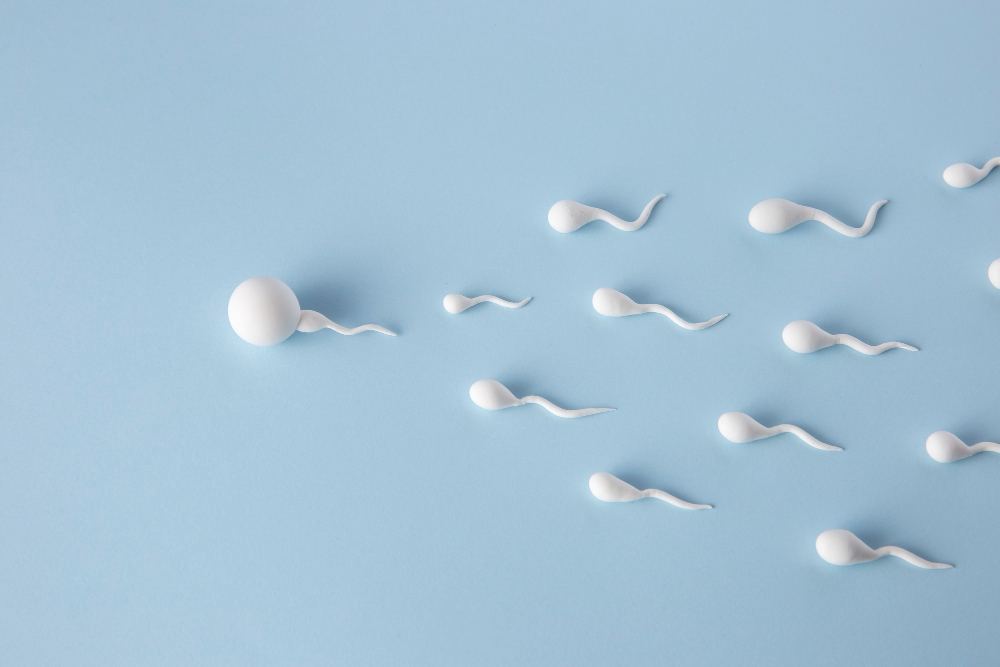Is It Possible for Sperm to Travel Through Clothes?


The answer is No! A common question people have is whether sperm can travel through clothes and lead to pregnancy. Understanding the specifics of sperm viability and the barriers that clothing provides can help clarify any misconceptions about how conception occurs. Here, we break down whether it’s biologically possible for sperm to penetrate clothing and result in pregnancy.
How Sperm Travels and Survives
For conception to occur, sperm must be deposited close to or directly inside the vaginal canal, where it can travel through the cervix to reach an egg. Sperm cells are delicate and require a specific environment to survive. Outside the body, sperm begin to lose viability quickly, particularly when exposed to air or fabrics that absorb moisture.
Sperm Viability:
Sperm cells can survive up to five days inside the female reproductive system, where conditions are ideal. However, on external surfaces, sperm cells start to die within minutes to hours, depending on factors like moisture and temperature.
Can Sperm Pass Through Different Types of Fabric?
In general, clothing provides a strong barrier against sperm movement, making it highly unlikely for sperm to travel through clothes and cause pregnancy. Here’s how different fabric factors influence this:
Fabric Thickness and Type:
Thicker materials (like denim or heavy cotton) are nearly impossible for sperm to pass through. Even thinner fabrics, like underwear or leggings, offer enough of a barrier to prevent sperm from traveling through effectively.
Moisture Absorption:
Fabrics like cotton absorb moisture, which traps and deactivates sperm quickly. Without direct contact in a moist environment, sperm do not have the motility or environment needed to reach the vaginal canal.
Situations Where Pregnancy Is or Isn’t Possible Through Clothing
While unlikely, certain scenarios may raise questions. Here’s a closer look:
Dry Sperm on Fabric:
Once sperm dries on clothing, it is no longer viable and cannot cause pregnancy. Drying deactivates sperm almost immediately, removing any chance of fertilization.
Wet Clothing or Thin Layers:
Even if clothing is damp, such as swimsuits, and sperm is present, it would still be challenging for sperm to travel through layers and enter the reproductive tract.
Direct Contact Through Very Thin Layers:
While exceedingly rare, direct genital-to-genital contact with thin or damp fabric could, in theory, increase the chances of sperm reaching the vaginal area. However, the likelihood remains extremely low.
Factors Affecting Sperm Viability Outside the Body
Several factors reduce sperm’s survival outside the body, making conception unlikely in most external scenarios:
Exposure to Air:
Sperm exposed to air dehydrates quickly, making it non-viable in a short time.
Temperature:
Sperm thrive at body temperature. Exposure to colder or warmer temperatures outside the body decreases their viability.
Environmental Conditions:
Surfaces that absorb or dry out moisture deactivate sperm more quickly, making it difficult for sperm to move or survive.
Conclusion
While sperm is surprisingly resilient within the human body, it’s highly sensitive to external conditions. Clothing acts as a reliable barrier that prevents sperm from traveling to the vaginal canal, making conception through clothing virtually impossible. In scenarios with direct contact or thin, wet layers, the chances of sperm surviving long enough to cause pregnancy are still extremely low. Understanding these conditions helps clarify what is and isn’t possible when it comes to conception.
Contact Us if you have more questions about fertility and reproductive health. We’re here to provide accurate, science-based answers to your concerns.
FAQs
-
Can sperm pass through underwear and cause pregnancy?
- No, underwear acts as a strong barrier, and sperm cannot travel through it to reach the vagina.
-
Does sperm survive on dry clothing?
- No, once sperm dries, it is no longer viable and cannot lead to pregnancy.
-
Is it possible for sperm to travel through wet clothing?
- Although wet clothing may retain some moisture, it’s still highly unlikely for sperm to penetrate the fabric and result in pregnancy.
-
Can conception occur through direct contact with clothes on?
- It’s extremely rare, as clothing blocks sperm from reaching the reproductive tract.
-
How long can sperm survive outside the body?
- Sperm can survive only minutes to a few hours outside the body, depending on the surface and environmental conditions.



